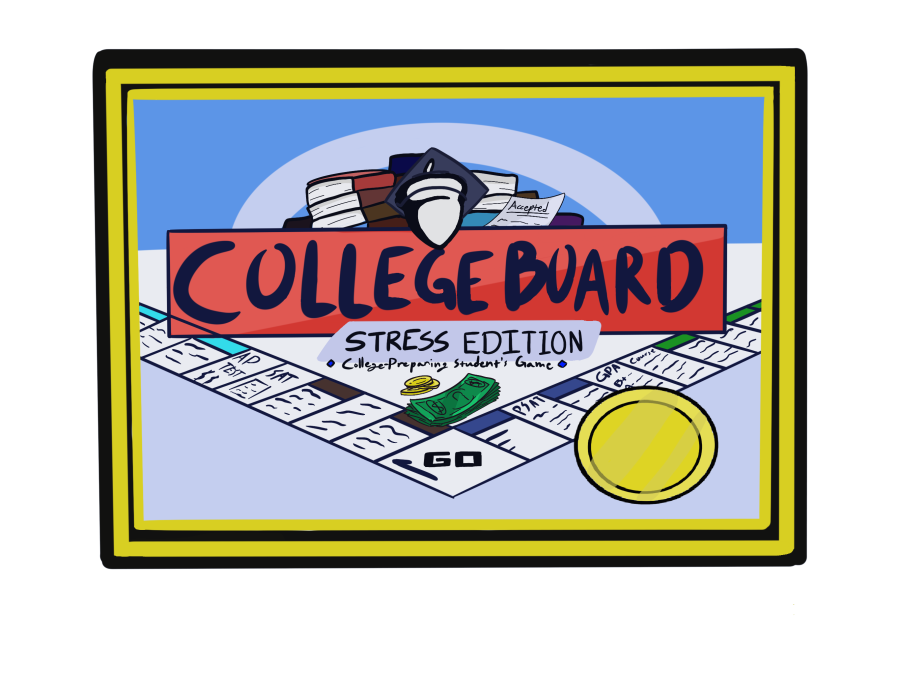The clock closes in at half-past midnight as junior Emma Zhang closes her AP Chemistry textbook and shuffles through her notes for tomorrow’s class. Like many of her peers, Zhang feels pressured by the strenuous AP Chemistry curriculum, dreading the upcoming Advanced Placement exam.
Taking AP Chemistry, a class containing college-level curricula approved by the College Board, Zhang said she often feels frustrated by its impact and the way AP courses are emphasized at Paly.
“… We are pressured to take it, and it impacts our other classes,” Zhang said. “I can’t focus on my other classes because I’m too busy worrying about my AP classes the most.”
Zhang also said other programs handled by the College Board, like the SAT, negatively impact high school students.
“(They) defeat the purpose of having a GPA, which basically shows your accomplishments over your four years in high school, but the SAT trophies what you can achieve in just three hours,” Zhang said.
Zhang’s perspective is echoed by many of her peers who say the College Board’s monopoly over standardized testing has caused great discontent, leading them to feel overwhelmed by the high cost of exams and the lack of transparency in the grading system.
Junior Vivian Tan said she thinks College Board has furthered unrealistic and unhealthy high standards at Paly, where students often think good is just not good enough.
“College Board greatly contributes to the competition at Paly,” Tan said. “I personally felt pressured to take more AP classes even if I didn’t have a passion for an area, and I think some students are ashamed of being in a normal lane rather than an AP lane.”
Despite the consequences of heightened academic expectations, AP Computer Science teacher Roxanne Lanzot said she thinks the resources offered by the College Board are helpful.
“What I appreciate about teaching (AP) tests is the College Board does an excellent job of giving teachers a lot of resources so that if you put in the work, you can really prepare your students for the exam,” Lanzot said.
However, Lanzot said that because public education is free, College Board tests should also be made more accessible for students.
“Students shouldn’t have to pay to take AP exams, and you shouldn’t have to pay to take the SATs, and the district shouldn’t have to take that burden upon themselves either,” Lanzot said. “If we want an equitable pathway toward higher education, then one thing that can be changed is (that) they just do not charge for AP exams.”
AP Macroeconomics teacher Debbie Whitson said she appreciates the availability of rigorous classes but worries that students are discouraged to try different subjects just because they are not APs.
“… I wonder if that’s driving students to work too hard in high school as opposed to just waiting until they’re older and in college to explore another curriculum,” Whitson said. “I like the choices and options for rigor for students who want to challenge themselves and are ready and interested and passionate, but there’s a little bit of concern as it feels like it’s being forced down people’s throats.”
And Whitson said students often unnecessarily overburden themselves with AP courses to stand out and appear more academically appealing to colleges.
“There’s a little bit of a misconception amongst students because there are still so many different college programs that fit so many different kids, and there are so many alternatives to college or community college,” Whitson said. “I feel like we get really stuck in one direction (at Paly) and I don’t know if the College Board has created that or if that’s just us wanting the most rigorous ways to stand out.”
The College Board did not respond to an interview request.




